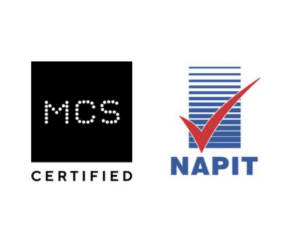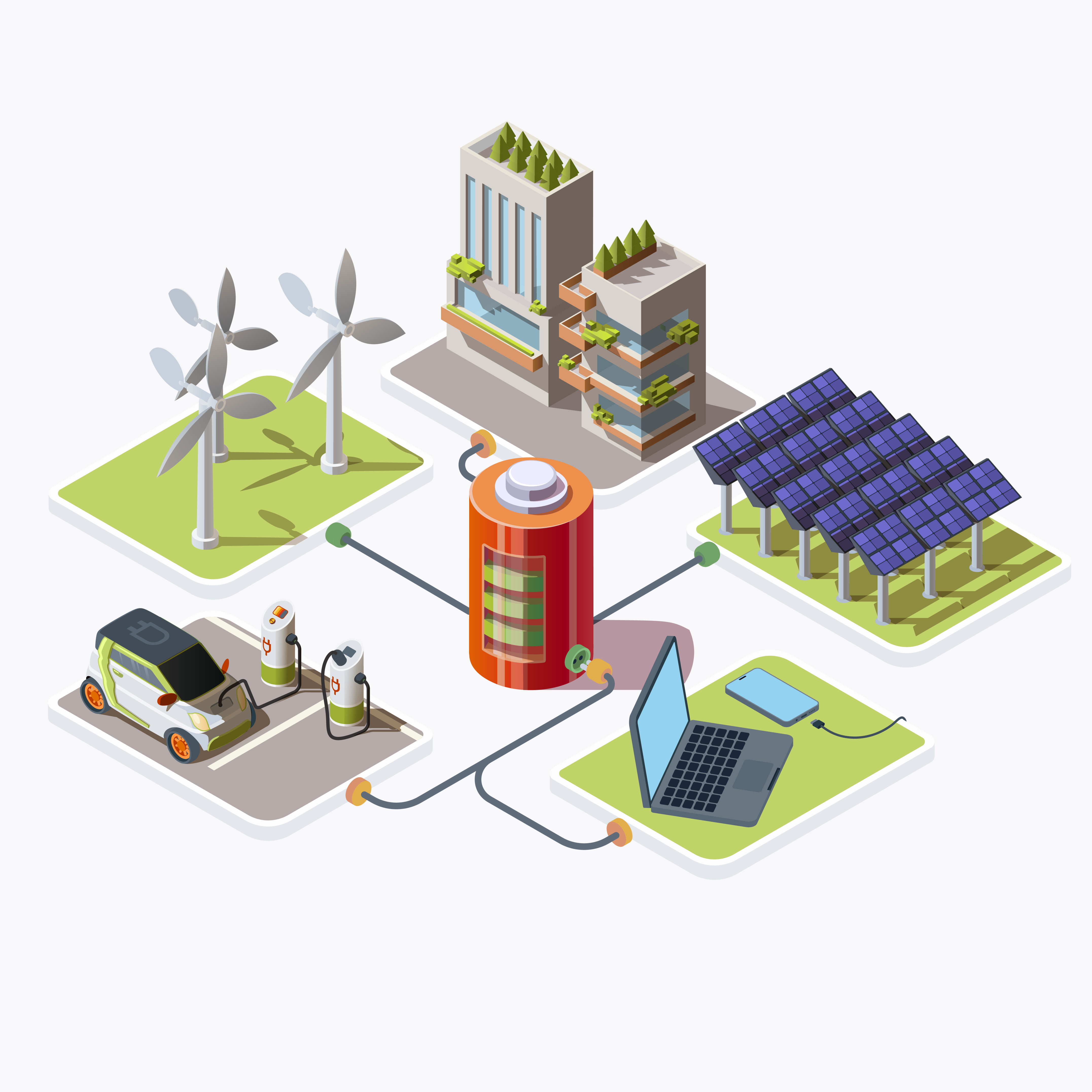Introduction
Blockchain technology has emerged as a transformative force in various industries, and its impact on renewable energy markets is increasingly significant. This article explores the diverse ways in which blockchain is shaping the renewable energy landscape, from enabling peer-to-peer energy trading to enhancing transparency in renewable energy certificate tracking.
Blockchain Technology
Blockchain technology is the underlying foundation of cryptocurrencies like Bitcoin, but its applications extend far beyond digital currencies. At its core, blockchain is a decentralized, distributed ledger that records transactions across a network of computers in a secure and transparent manner. Key features of blockchain include immutability, transparency, and cryptographic security. Renewable energy markets play a crucial role in the transition towards a sustainable energy future. The adoption of
renewable energy sources such as solar, wind, and hydro power is accelerating globally, driven by environmental concerns and technological advancements. However, renewable energy markets face challenges such as intermittency, grid integration, and regulatory hurdles.
Blockchain technology offers several promising applications in the renewable energy sector, addressing key challenges and unlocking new opportunities for innovation. Some of the most notable applications include peer-to-peer energy trading platforms, renewable energy certificate tracking, smart contracts, decentralized energy grids, and energy financing through tokenization. One of the most compelling use cases of blockchain in renewable energy markets is peer-to-peer energy trading platforms. These platforms leverage blockchain technology to enable direct transactions between energy producers and consumers, bypassing traditional utility intermediaries. By allowing individuals and businesses to buy and sell excess renewable energy in real-time, peer-to-peer energy trading promotes energy autonomy, fosters community resilience, and encourages the adoption of renewable energy technologies.
Another area where blockchain is making a significant impact is in renewable energy certificate (REC) tracking. RECs represent the environmental attributes of renewable energy generation and are used to validate and track the production and consumption of renewable energy. Blockchain provides a transparent and tamper-proof platform for recording REC transactions, ensuring the integrity and authenticity of renewable energy claims. By enhancing trust and transparency in REC markets, blockchain facilitates the growth of renewable energy investments and supports corporate sustainability initiatives.
Smart Contracts in Renewable Energy Markets
Smart contracts are self-executing contracts with the terms of the agreement directly written into code. In the context of renewable energy markets, smart contracts enable automated and secure transactions between energy producers and consumers. For example, smart contracts can automatically trigger payments when predefined conditions are met, such as the delivery of renewable energy from a solar panel to a consumer’s home. By eliminating the need for intermediaries and reducing transaction costs, smart contracts streamline renewable energy transactions and improve market efficiency.
Blockchain technology is also driving the development of decentralized energy grids, which are distributed networks of energy resources that operate independently of centralized utilities. By using blockchain to manage and coordinate energy production, storage, and distribution, decentralized energy grids offer increased resilience, flexibility, and efficiency compared to traditional centralized grids. Additionally, blockchain enables the integration of renewable energy sources and facilitates peer-to-peer energy trading within decentralized energy communities.
Blockchain has the potential to revolutionize energy financing by providing new mechanisms for crowdfunding renewable energy projects and tokenizing renewable energy assets. Through blockchain-based crowdfunding platforms, individuals can invest directly in renewable energy projects, bypassing traditional financing institutions and democratizing access to clean energy investments. Furthermore, tokenization allows renewable energy assets, such as solar panels or wind turbines, to be divided into digital tokens that can be traded on blockchain-powered marketplaces, unlocking liquidity and expanding investment opportunities in the renewable energy sector.
Improving Energy Traceability with Blockchain
One of the critical challenges in renewable energy markets is ensuring the traceability and provenance of energy from source to consumption. Blockchain technology offers a solution by providing a transparent and immutable record of energy transactions. By recording energy production, consumption, and distribution data on a blockchain ledger, stakeholders can verify the origin and environmental attributes of renewable energy, fostering trust and accountability throughout the supply chain. This enhanced traceability not only enables consumers to make informed choices about their energy purchases but also facilitates compliance with regulatory requirements and sustainability standards
Energy The adoption of blockchain technology in renewable energy markets has significant environmental benefits. By enabling more efficient and transparent energy transactions, blockchain helps reduce greenhouse gas emissions, promote renewable energy deployment, and accelerate the transition to a low-carbon economy. Additionally, blockchain facilitates the integration of distributed renewable energy resources, such as rooftop solar panels and community wind farms, into the grid, further enhancing environmental sustainability and resilience.
Blockchain technology is driving economic transformation in renewable energy markets, creating new opportunities for innovation, investment, and job creation. By streamlining energy transactions, reducing transaction costs, and unlocking new revenue streams, blockchain enhances the competitiveness and profitability of renewable energy projects. Furthermore, blockchain-powered energy financing mechanisms, such as tokenization and crowdfunding, democratize access to capital and empower individuals and communities to participate in the renewable energy transition. Overall, blockchain is catalyzing economic growth and prosperity in the renewable energy sector.
Legal Implications of Blockchain-Based Energy Transactions
Blockchain technology is revolutionizing the way energy transactions are conducted, recorded, and verified, offering numerous benefits such as transparency, efficiency, and security. However, the adoption of blockchain in energy markets also raises various legal implications and regulatory considerations that must be addressed to ensure compliance, mitigate risks, and facilitate the smooth operation of blockchain-enabled energy systems. Some key legal implications of blockchain-based energy transactions include:
Contracts and Agreements: Blockchain-enabled smart contracts automate and enforce the execution of contractual agreements between energy producers, consumers, and other stakeholders. Smart contracts are self-executing contracts with the terms of the agreement directly written into code, enabling automatic execution of transactions based on predefined conditions. However, the legal validity and enforceability of smart contracts may vary depending on jurisdictional laws, contract formation requirements, and the interpretation of contractual terms by courts.
Data Privacy and Security: Blockchain networks store sensitive information about energy transactions, participants, and assets on a distributed and immutable ledger. While blockchain provides security features such as cryptographic encryption and decentralized consensus, it is essential to ensure compliance with data privacy laws and regulations, such as the General Data Protection Regulation (GDPR) in the European Union and the California Consumer Privacy Act (CCPA) in the United States. Blockchain developers and energy companies must implement appropriate data privacy and security measures to protect against unauthorized access, manipulation, and exploitation of energy data.
Conclusion
Blockchain technology holds immense promise for transforming renewable energy markets, offering innovative solutions to key challenges and driving efficiency, transparency, and sustainability in the energy sector. From peer-to-peer energy trading platforms to renewable energy certificate tracking systems, blockchain is revolutionizing the way energy is produced, consumed, and traded, unlocking new opportunities for innovation, investment, and collaboration. Despite its potential, blockchain adoption in renewable energy markets faces various challenges and barriers, including scalability limitations, regulatory uncertainty, and privacy concerns. However, through collaboration, innovation, and regulatory support, stakeholders can overcome these challenges and harness the full potential of blockchain to accelerate the transition to a clean, resilient, and sustainable energy future. By addressing legal, ethical, and regulatory considerations, stakeholders can ensure that blockchain-enabled energy systems adhere to principles of fairness, transparency, and accountability, building trust and confidence among consumers, investors, and regulators. By embracing innovation, collaboration, and sustainability, we can unlock the transformative potential of blockchain technology and create a brighter, cleaner, and more resilient future for generations to come.
FAQS







